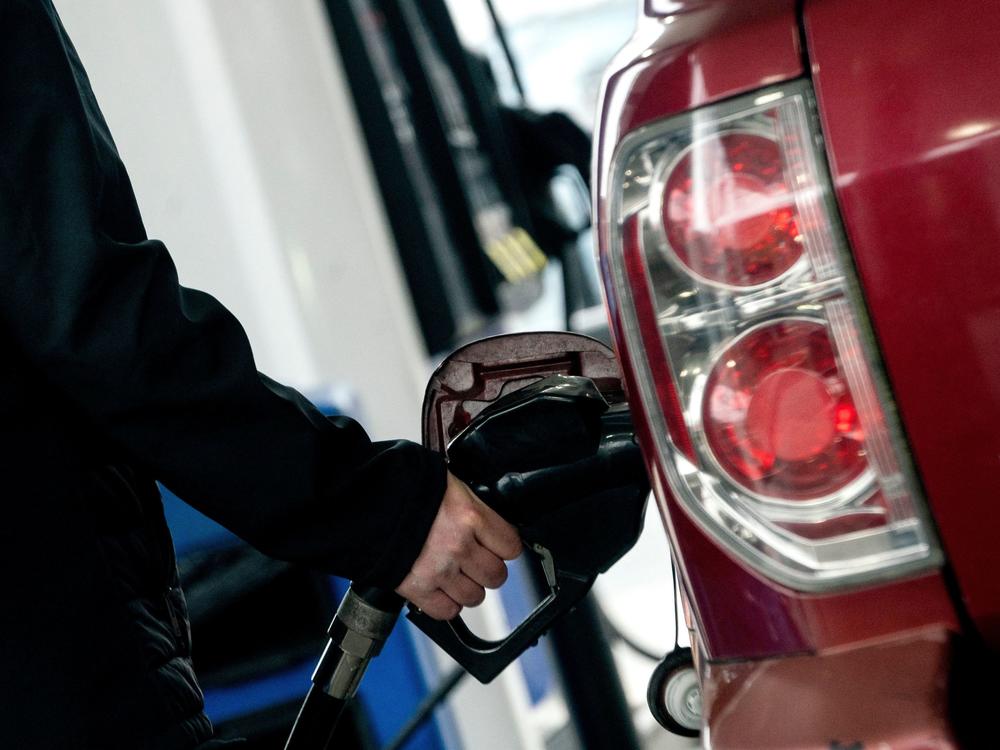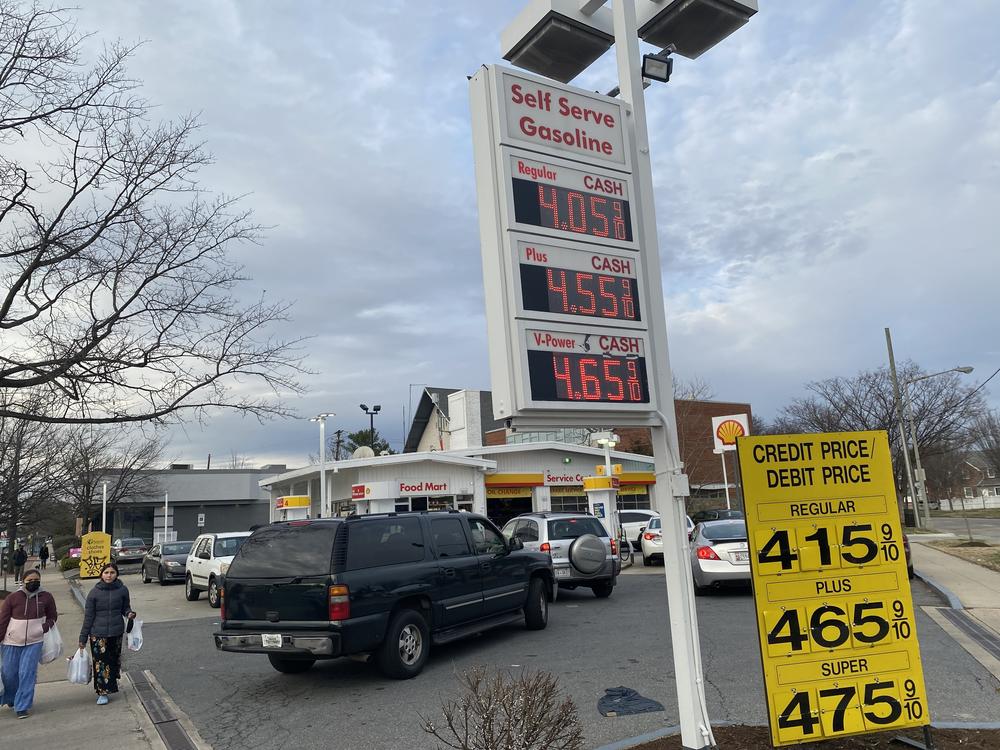Section Branding
Header Content
High gas prices present another hurdle in bringing workers back to the office
Primary Content
Amna Nadeem is excited about starting her job as a software engineer at Google. She interned with the company last fall — remotely.
But beginning mid-April, the 22-year-old recent college graduate will be going into the office at least three days a week. So gas prices, which have inched up toward $6 per gallon in California, are high on her mind.
As she looks for housing near Google headquarters in Mountain View, Calif., one of costliest housing markets in the country, she's thinking about paying more to live closer to work, to save on gas and commuting.
"It's definitely something I have to consider," she says.
In Washington, D.C., as Stephanie Nguyen puts $45 of gas into her compact SUV, she says she's happy to finally be in-person at her law firm, a job she started in the pandemic, but not so happy about the cost of commuting. Remote until two weeks ago, she's now having to fill up on gas weekly instead of monthly.
"It's basically four times as much as I had to pay," Nguyen says.
President Biden wants workers back in person
Across the country, workers who have been home for two years are being called back into their offices, some on a hybrid schedule and others full time. President Biden pledged that the vast majority of federal workers will return in person and urged others to as well.
"It's time for America to get back to work and fill our great downtowns again with people," he said in his State of the Union address.
But amid soaring gas prices, some are asking: Really? Now?
Everywhere, gas prices have spiked, with the national average for a gallon of regular at $4.325 on Monday, according to AAA. But companies from Wells Fargo to Microsoft to Ford say their return-to-office plans, which have been delayed multiple times because of COVID-19, are moving forward as planned.
Job seekers want remote opportunities with no commutes
Outside Charlotte, N.C., Mathew Michanie is job hunting, having recently been laid off from his job as a business analyst. Prior to the pandemic, he drove one hour, each way, to and from work, something he never wants to do again.
"I love spending time with my kids here, instead of spending time in traffic," he says. "I love being able to chat with my wife between meetings if possible."
In his job search, he's prioritizing fully remote opportunities over hybrid positions and won't consider anything that requires him to be in the office every day. As the sole breadwinner for his family, $4 gas cemented that for him.
"I feel everything going up ... you go to the grocery store, costs are all up. Gas is just one of those many things, another straw on the camel's back," he says.
A few companies are offering gas cards to ease the cost of commuting
In New Braunfels, Texas, Greg Perkins has been worried about his employees as he's watched gas prices steadily rise. Perkins is the owner and president of Oakridge Bellows, which manufactures expansion joints for pipes, including those used in power plants.
"Most people — they can't absorb unexpected costs like that," he says, including his two dozen employees who typically drive 20 to 40 minutes to get to work.
When gas hit $4 in Texas recently, he decided to give his employees $50 gas cards to help with their commutes. He hopes other companies will do something similar.
"This really doesn't hit your bottom line like you think it would," he says, pointing out the morale boost it brings. "You got to take care of your employees in order to get them to care about taking care of customers."
As for whether he'll do a second round of gas cards, Perkins says he's taking things a few weeks at a time.
"World events will hopefully resolve themselves," he says. "[Gas] may stay high, but hopefully not as high as it currently is."
On Monday, average gas prices dropped a hair from last week when, according to AAA, they hit an all-time record high of $4.331 per gallon.
Copyright 2022 NPR. To see more, visit https://www.npr.org.


